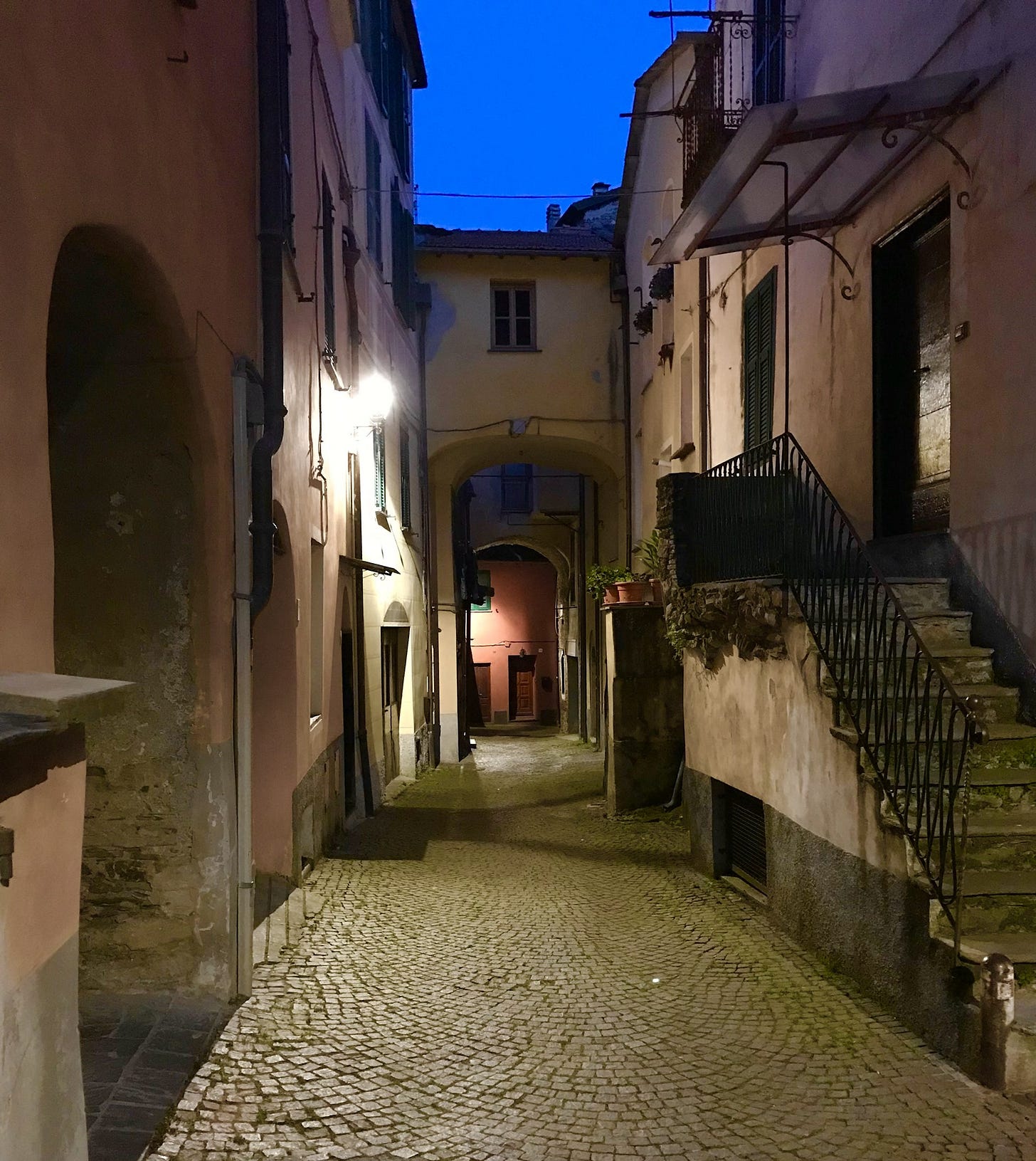The Shortcut Home
Arrivederci, Maria
(Reprinted from June 2021, epilogue added)
Last night I took the shortcut home, and it changed my life.
Carrying six heavy glass bottles of water, I walked through the alley behind our home. There I saw a thin elderly lady less than five feet tall, bending over pulling weeds from between the cobblestones. “I pull these weeds”, she explained, “so that this alley will be clean. No one else will do it, but it is very important.” Her eyes were those of someone who has seen plenty, maybe too much in all her years.
“I was born here in Pieve di Teco, in 1932. So much has changed, but It’s still my home. That’s why I’m always outside picking up trash and pulling weeds.” She showed me the pile of weeds she had collected on this warm summer night.
I asked her what life was like here in Pieve during the war. Suddenly, the weeds became less important, as she stood up straight, and looked me in the eye. “Fear, tremendous fear, all the time. The Germans roamed the streets. My mother had four children, three boys, and me. Our father hid from the Germans down by the river, and my mother would bake bread and bring it to him every day. Many times my brothers would hide with him, leaving my mother and I alone in the house. ‘Maria, don’t say anything to the Germans’, my father would tell me. ‘The less you say, the longer you will live.’ I was eleven years old on the day while my mother and brothers were gone, the German soldiers came - four of them. A woman was with them.” At this point Maria put the weeds down, and tears flowed down her aged face. “I shook with fear. They asked where my family was, and I said nothing. I stayed quiet because I was afraid for my life, and for the lives of my brothers. Had they found my brothers, they would have killed them. The soldiers took our bread for themselves, and inspected the house. They saw all the beds, and forced me to talk. I told them that I lived alone, that my family had gone. ‘She is lying. She lives here with her parents and three brothers.’, the woman barked. I said nothing more. I just sat down, shaking with fear. The Germans took what they wanted from the house, and finally left. I tell you that no one should ever have to live in that type of fear.”
Maria composed herself. “My father cried when he heard what had happened. ‘Maria I am so sorry that we left you home alone.’ Later, I joined my parents and we all hid by the river until the liberation. They did not get us and now I am a strong woman!” It became clear to me that even though the invading army had left long ago, Maria was still trying to remove the filth from the streets.
Returning home, the weight of my water bottles seemed like nothing compared to the weight of the memories Maria carries every day.
Brava Maria, Brava.
Epilogue:
It is impossible to forget the impact that the war had on this small city. The street I live on was named after the young Mario Ponzoni who at 18 was killed here by Nazi soldiers. Monuments and plaques honoring the courage of those young patriots are everywhere. But those who survived are quickly passing on.
Today we say goodbye to Maria. At ninety years old, she still carried the memories of WWII. I can still recall her bending down to clean the filth out of the alley.
It is with fond pleasure that I will now take on the responsibility to clean her alley. And each time I do, I will pass by Maria’s old house, look at the mailbox with the faded word “Fueri” written on it, and remember her lessons to all of us.




I remember walking with you and carrying six glass bottles of water. Thank you for newsletter, it brought back many memories. I miss you both :-)
Thank you for that